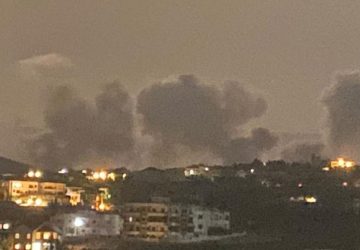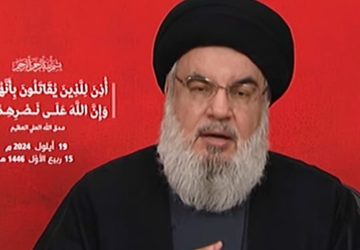Listen to the article
On the 31st day of the bloody conflict between Hamas and Israel in the Gaza Strip, voices are being raised to denounce the horror. However, what is most striking is the silence of the Arab states. “Weyn al Arab?” or “Where are the Arabs?” is the cry of the Palestinians, betraying their feeling of abandonment by their neighbors.
Except for Qatar and Syria, which have called the events in Gaza a “massacre,” the reactions of nearby and Middle Eastern governments have been limited to the bare minimum. Saudi Arabia and Egypt, major actors in the region, have confined themselves to formal condemnations, avoiding any strong criticism.
Most Arab governments are turning to concerns they deem more pressing, particularly the threat posed by Iran, which has led them to seek some form of strategic alliance with Israel. Egypt, keen not to upset the United States, continues its fight against Hamas and jealously monitors the Rafah border, the only way out for the inhabitants of Gaza, opening it on demand and under conditions.
Jordan, for its part, manages a considerable influx of Palestinian refugees, with a precarious balance to maintain with Israel. The waning interest in the Palestinian cause is not a recent phenomenon. In the 1950s, under Nasser, Palestine was at the heart of Egyptian policy, and in the 1980s, Saudi Arabia proposed a peace plan. But over the decades, this interest has eroded, overshadowed by other regional crises such as Islamist terrorism, civil conflicts, or the perceived threat from Iran. The Arab world, fragmented and without a clear consensus on the Palestinian issue, has gradually oriented towards a policy of normalization with Israel, setting aside the ideal of pan-Arab solidarity. Leaders use the Palestinian cause mainly for domestic political purposes, without real commitment to a concrete solution.
Egypt: A Sister Under Scrutiny…
Faced with the escalation of the conflict between Israel and Hamas that began on October 7, 2023, Egyptian President Abdel Fattah Al-Sissi finds himself in a complex dilemma. While Israel and the United States pressure Egypt to host refugees in the Sinai region, Sissi must also consider the desire to preserve Egypt’s territorial integrity while taking into account the strong support of the Egyptian population for the Palestinian cause. This tense situation comes as Egypt prepares for presidential elections in two months, a critical period for Sissi who could use the crisis to his political advantage. Northern Sinai, which has become a closed military zone, is envisioned by Israel as a potential location to establish a refugee camp for Palestinians from Gaza, especially in light of the humanitarian assistance flowing toward Al-Arish. This initiative is set against a backdrop where the Israeli Prime Minister perhaps hopes to see a situation similar to the Nakba, a massive displacement of Palestinians, which is feared by the Palestinians… and by the Egyptian regime, which went so far as to point its guns toward Gaza to avoid being “invaded.”
Egyptian Popular Anger: Pressure on Sissi
In Egypt, popular anger against inflation and a debt crisis, in addition to sympathy for the Palestinian cause, threaten the stability of Sissi’s regime ahead of the December presidential elections. Current demonstrations, despite severe repression, show discontent that could influence the electoral campaign. Sissi, aware of this dynamic, seeks to position himself favorably regarding the Palestinian cause to maintain his power. In the event of forced displacement of Palestinians, the Egyptian president might seek to capitalize on the situation, including through financial means. In this context, it is especially the Islamic State group, notably present in Sinai, that seems increasingly interested in the Palestinian issue. A notable shift for the organization, which could have dangerous implications, particularly because of the growing despair of Gaza’s youth, making them susceptible to extremist influences. This detachment of the Arab states reduces international pressure on Israel to find a solution to the conflict. Even though they finally requested a ceasefire via US Secretary of State Antony Blinken, just 48 hours ago, it is difficult to absolve themselves from a silence that is more than unpardonable.





